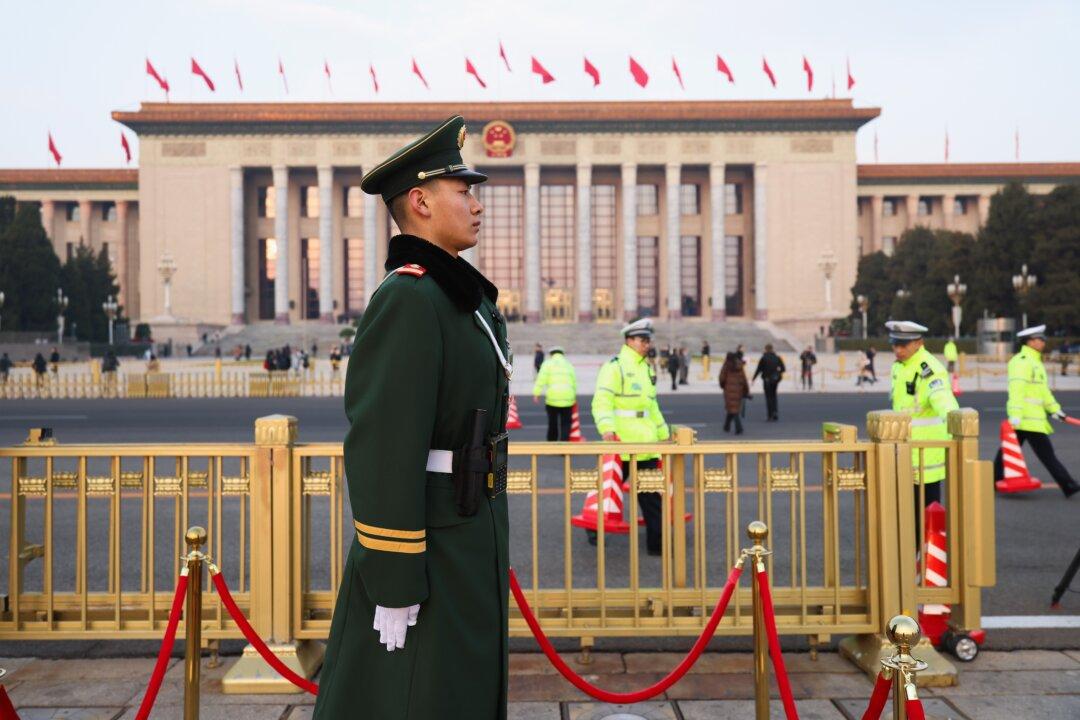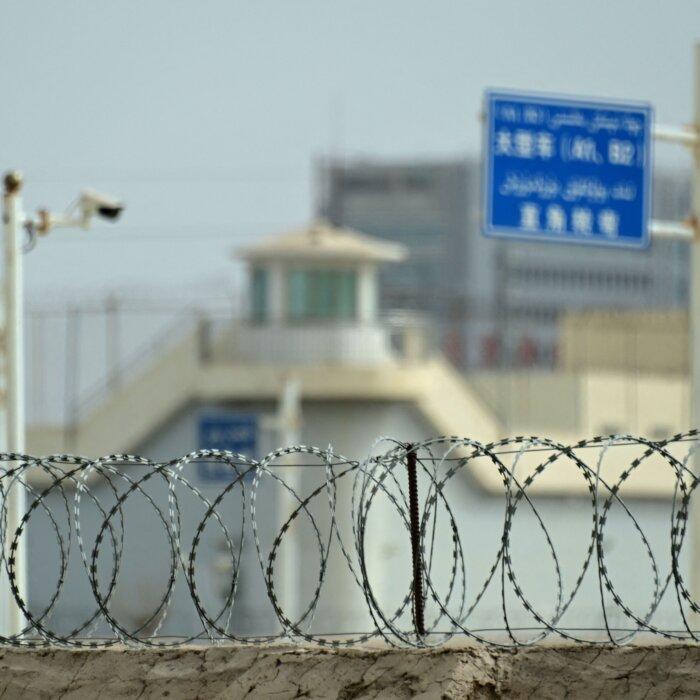Falun Gong practitioner Wang Liqun was sentenced to 12 years in prison for his religious beliefs in a case that spotlights the extensive efforts the Chinese regime undertook to hunt down one person and charge him for his faith.
Court documents recently reviewed by The Epoch Times—including a 700 page indictment—revealed how the bakery owner was forced into hiding, found by the regime’s AI-enabled mass surveillance system, and tried in secret in 2023.
Falun Gong, also known as Falun Dafa, is a spiritual discipline based on the principles of truthfulness, compassion, and tolerance. First introduced to the public in China in 1992, the practice quickly spread by word of mouth to reach an estimated 70 million to 100 million practitioners by the end of the decade.
The Chinese Communist Party (CCP), fearing that Falun Gong’s popularity threatened the regime’s power, began a brutal campaign to eradicate the practice on July 20, 1999. Since then, untold numbers of practitioners have been subjected to wrongful detention, torture, brainwashing, forced labor, and death by forced live organ harvesting.
Wang owned and operated his own bakery in the town of Yima in China’s Gansu Province.
He began practicing Falun Gong in 1994. When the persecution started on July 20, 1999, thousands of arrests were carried out overnight across China. Like many practitioners, Wang was sent to a labor camp not long after the persecution began.
Wang stated that when he began practicing Falun Gong, he adhered to the practice’s moral teachings, such as being considerate of others in his actions. His attorney said Wang’s business dealings demonstrated his integrity and that he frequently assisted others. Wang had been elected president of a local business association and vice president of an industry and commerce group, and his business had many five-star ratings.
Defense court documents included testimony about his character. According to the defense, even the police officer who sent Wang to a labor camp said that it would be better to release him, as people spoke well of him and the investigations fell short.

Despite that, Wang was sentenced to three years of reeducation through labor in 2000.
In China, a statute regarding reeducation through labor allowed the state to detain suspects for three to five years without trial in labor camps. It was repealed in 2013.
Local police had summoned Wang to the Qingcheng County Public Security Bureau, where he was forcibly transferred and detained at the Qingcheng County Detention Center. After 15 days at the detention center, he was moved to Ping'antai No. 1 Labor Camp in the city of Lanzhou without any legal proceedings. He was subjected to mental and physical torture during the three years he was held at the labor camp, his attorney said.
In 2015, Wang went into hiding.
According to court documents, that same year, Wang gave people in his town materials about Falun Gong that sought to counteract the regime’s propaganda.
In June 2015, he also sued Jiang Zemin, the now-deceased CCP leader who initially ordered the persecution of Falun Gong.
After China’s top court announced in May 2015 that every case filed must be heard, approximately 200,000 Falun Gong practitioners and their family members filed lawsuits against Jiang. The court has not honored the regulation, and instead, many Falun Gong practitioners have been threatened, had their homes raided, and been detained for filing such complaints, according to public records.
The Qingcheng County Public Security Bureau raided Wang’s bakery in July 2015.
Secret Trial
Wang was living in Xi'an, in China’s Shaanxi Province, when he was again illegally detained in October 2022.He was tried in secret on Feb. 27, 2023, for his activities in 2015, and sentenced to 12 years in prison.
Beijing-based lawyer Yu Wensheng told The Epoch Times that using China’s criminal law to convict Falun Gong practitioners is a misapplication of the law and has resulted in numerous arrests and illegal detentions amounting to a mass abuse of power and miscarriage of justice.
Yu and other China-based attorneys interviewed by the publication said the case and charges were “absurd.” Human rights lawyer Li Ming said that cases against Falun Gong practitioners are controlled by the 610 Office, not by prosecutors and courts, and generally ignore the law.
China’s constitution guarantees freedom of religion, expression, assembly, and protest. But the reality is that, under the CCP’s rule, dissidents continue to be arrested for practicing their faith or spreading information, and spend years in the regime’s “black jails.”
Prosecutors in Wang’s case presented questionable materials, including a 700-page indictment that was an exact copy of an indictment filed in 2016 against Falun Gong practitioner Duan Xiaoyan.
Court documents stated that police found no incriminating evidence when they searched Wang’s apartment in Xi'an. They instead pointed to items they had taken from Wang’s home in Yima in 2015.
Wang’s attorney argued that possessing Falun Gong materials is legal; the Chinese regime previously banned the handling and printing of Falun Gong materials in 1999, but issued a revocation in 2011. Prosecutors never responded to this argument.
The prosecutors also presented Wang’s previous detention at the labor camp as evidence of wrongdoing, which Wang’s attorney argued was absurd. When the law enabling reeducation through labor was in effect, it allowed for detention without trial or conviction. It was also repealed in 2013, making reeducation through labor a current violation of the Chinese law, the defense argued.
The verdict cited Wang’s lawsuit against the former CCP leader, but filing a civil complaint, even against a state leader, is not illegal in China, according to the defense.
The verdict also listed testimony from 15 witnesses who said they received Falun Gong materials from Wang, but none mentioned any harm, and no witnesses were present at trial.




